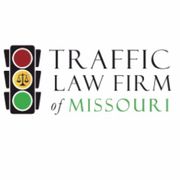
Safe driving requires being aware of everything happening around you. Doing something else that requires your attention while driving is a leading cause of both accidents and traffic tickets. While doing anything that takes your attention off the road is considered distracted driving, most activities fall into one of three types, all of which create road hazards. Here's what to know to drive responsibly.
3 Types of Distracted Driving
1. Visual Distractions
A visual distraction is anything that causes you to take your eyes off the road. The most common example is using a cell phone. Texting or emailing while driving is a visual distraction. Drivers under age 21 and commercial drivers can receive traffic tickets for distracted driving if they are caught texting.
That's not the only potential visual distraction. Looking at something on the side of the road or turning to face a passenger can cause you to miss traffic signals or hazards, also increasing your risk of committing a violation or being involved in an accident.
2. Manual Distractions

We've all seen people doing things behind the wheel that they shouldn't, like eating, applying makeup, even shaving. Any of these activities can qualify as a manual distraction, as they involve taking your hands off the wheel. Holding your cell phone, even if you aren't looking at it, is also a manual distraction.
Even when you are driving in ideal conditions, any time you take your hands off the wheel, you may not react to a hazard in time. Manual distractions can also put you at risk of a traffic ticket if you miss traffic signs or signals because you aren't paying attention.
3. Cognitive Distractions
Almost every driver has experienced cognitive distraction, which takes your mind off driving. You might start daydreaming while on a long stretch of highway, for instance, or get caught up in a conversation with a passenger.
In the best-case scenario, you experience nothing worse than a missed turn. However, cognitive distractions are generally the most dangerous, because they significantly reduce your reaction time and keep you from responding to hazards. Like other distractions, cognitive distractions can lead to traffic tickets as well, as you're more likely to speed or miss road signs.
If you received a traffic ticket, rely on the Traffic Law Firm for help responding to the charges. Serving drivers across St. Charles, Lincoln, and Warrenton counties, MO, the team has unique insight into traffic law since their principal attorney served as a prosecutor for almost 10 years. Learn more about their services on their website, follow their Facebook for tips, and call (636) 462-7867 to schedule a consultation.
About the Business
Have a question? Ask the experts!
Send your question

